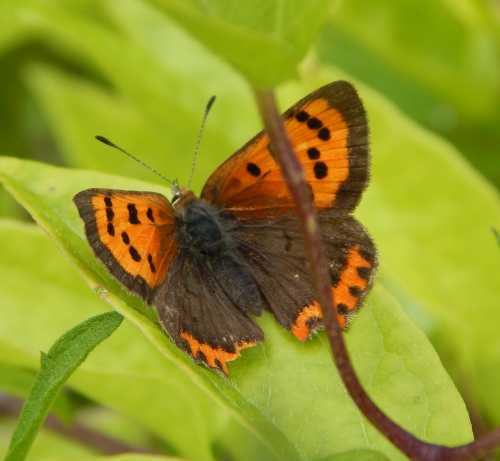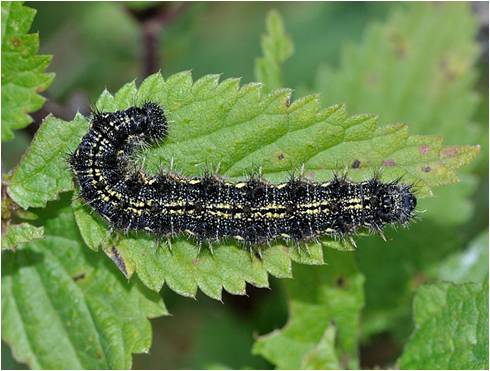British Butterfly Decline
Yet another report is raising alarm over the decline of butterfly species in Britain:
"'Final warning' decline in butterflies raises fears over pesticides"
See: http://www.telegraph.co.uk/news/2016/10/10/final-warning-decline-in-butterflies-raises-fears-over-pesticide/
This follows on from reports earlier in the year regarding butterfly declines in both the USA and UK.
The recently released figures are alarming:
- Comma butterfly numbers fell 46% vs 2015
- Gatekeepers - down 40% vs 2015
- Small coppers - down by 30% vs 2015
- Small tortoiseshell - 47% drop vs 2015
- Peacock butterflies down 42% vs 2015
 Small copper butterfly - Lycaena phlaeas
Small copper butterfly - Lycaena phlaeasCommenting on UK butterfly decline, Butterfly Conservation said:
"Perhaps the very mild winter had a negative effect, or the cold spring,
or perhaps the impacts of intensive farming and pesticides are really
hitting these common species now."
 Small tortoiseshell caterpillar.
Small tortoiseshell caterpillar.It could of course, be a combination of these things. I do wonder, however, how numbers might stack up even in varied climates if we had no neonicotinoids, for example, and if more farmers embraced wildlife friendly farming practices instead of intensive ones.
Some farmers are indeed doing just this, as can be seen from this fabulous image above of a pollinator margin (the photograph - taken in autumn - does not do the pollinator margin justice - it was huge and diverse, obviously created by a farmer keen to do his bit! :))
It would be wonderful to see more pollinator margins like these!
It is pretty obvious that if you deprive a species of food and habitat, its numbers will decline. That is where ordinary people like you and I can step in and try to help reverse these trends by looking at the plants we have in our gardens and pots. Peacock butterflies, for example, should be quite happy foraging on a flowering shrub in the garden - indeed, the photograph taken above was taken in my small front patch.
Councils can also be influenced because they often manage roadside verges that can be left for wildflower, and brownfield sites can actually be havens for pollinators if they are allowed to be.
What can you do about butterfly decline?
Firstly, you can plant as many flowers and shrubs for pollinators as you can.
If you live in an area that receives Monarch butterfly visits, why not plant milkweed - it will no doubt help other butterflies and pollinators too.